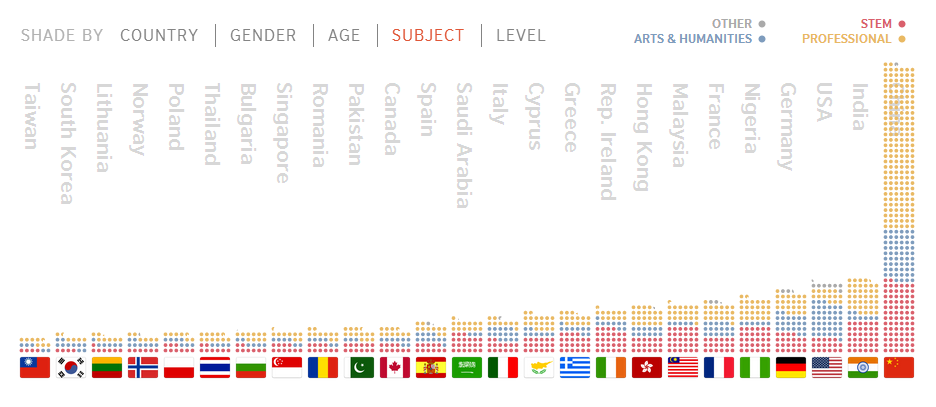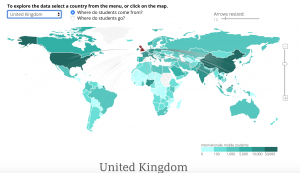 UK University Key Facts and Unique Aspects
UK University Key Facts and Unique Aspects
- There are 126 Universities in the United Kingdom (England, Wales, Scotland and Northern Ireland)
- Predicted IB (for IB students) and AP/SAT (for US high school diploma students) scores are essential. Other exam based qualifications also acceptable.
- Can direct entry to Law, Medicine, Vet science and Dentistry. Medicine and dentistry will likely require UCAT. Law may require LNAT.
- Most degrees are 3 years; Vet Science and Medicine is 5 and 6 years.
- All Universities accept UCAS–Maximum of 5 programs
- Download NACAC’s Guide to Applying to the United Kingdom
- Check out the Guide for IB students wishing to study in The UK for help information.
- Most UK universities accept Advanced Placement scores for admission purposes. More details at the Collegeboard AP recognition website.
Cool Country facts
- Purchasing power: 88.8 –Consider the US as 100; a score of 80 means it is 20% less expensive than living in the USA
- Happiness Index Rank: 15 in the world!
- Quality of life: 166.4 (average is 140 across the globe)
- Rainbow Index: 53% LGBTI equality & human rights (average is 68 in Europe)
- US NEWS Best Countries: Rank 8
- Prosperity Index: 12th in the world.
- Learn more through Beyond the States Profile and Educations’ Country Guide
Application Process
- Typically students will apply through a portal called UCAS. Many high schools create an account so they are UCAS centers–student’s should apply through this version by getting the buzzword from their University counselor/advisor.
- You can apply up to five programs. Medicine, Dentistry and Veterinary sciences limit you to four programs, but you can have a fifth one outside of these areas.
- Deadlines: All students should aim to apply by January 15th. Universities will reply by March 31 and the student can confirm enrollment in early May. Many universities may well review your application much sooner if you submit it earlier.
- All Medicine, Dentistry and Veterinary sciences programs have a deadline of October 15h.
- All programs at Oxford and Cambridge also have a deadline of October 15th.
- The UCAS application consists of
- Biographical information
- A listing of the courses you are applying for
- Your educational qualifications
- Your personal statement-– Use this tool to analyze your personal statement or this one. UCAS offers this fabulous template to get you started.
- Once you apply, the application goes to your counselor who will
- Verify your qualifications
- Add your predicted grades and
- attach your reference
- and then send it to UCAS who will distribute to your choices.
- Some finer points:
- Can only apply to Cambridge or Oxford, not both.
- Growing number of universities also accept the common app. You are still limited to applying to a total of five.
- There are no quotas for international students except in Medicine and Dentistry. You can learn more about pursuing medicine in the UK here or Dentistry here.
- You may have to take an entrance exam depending on the subject and university.
- Some universities may require the IELTS UKVI which is the same as the IELTS but has more test security. Typically students who are right at the minimum qualifications for a course, may be required to take the UKVI.
- Some universities/courses require interviews, sometimes via skype or in person. Oxford and Cambridge will invite you to interview:
- Cambridge: www.cam.ac.uk/interviews
- Oxford: www.ox.ac.uk/interviews
Application timeline:
- Spring of Junior year: Research courses of study and universities (see links). UCAS application goes live late May for the following year. This means you can create an account and start filling in your application.
- Early September: You can submit your application anytime after this date.
- October 15: Deadline for Oxford, Cambridge plus ALL Medical, Dentistry and Veterinary Science Programs
- January 15: Deadline for International Applications
- March 31: Universities are expected to reply by this date.
- May 1: Accept your firm and insurance offers
- Early July: Results come out and conditions can be lifted or go to clearing.
- Please note dates and deadlines in UCAS.
Tuition fees:
- Average Tuition fees (in US Dollars/year):
- Citizens: Up to £9,250 (Residents on UK.EU only)
- International students: $17,498
- Examples for international students
- University of Edinburgh arts/humanities: £20,950
- University of Edinburgh Business: £20,950
- University of Edinburgh Engineering: £27,550
- Imperial Engineering:£30,250
- Imperioal Biology £31,000
Research Links
- Not sure what you want to study? Try this tool which allows you to enter you primary courses (it is designed for A-Levels, but you can put in your three Higher Levels for IB or Advanced Placement courses).
- For applications and course search, use UCAS
- For comparing quality, use Discovery Uni (formerly Unistats), sponsored by the UK government, powered by student reviews of their courses.
- For good advice on course selection in high school use Informed Choices
- Another great resource are the book guides by Brian Heap. Check out the online version.
- Great discussions and insight at the Student room
- Handy website to explore deeper a student’s subject specific interest: MyHEPlus — done by Cambridge. Could be useful for Oxford or other intellectual places where a kid has a deep passion for a subject.
- Oxford offers a similar thing called OxPlore
- Another great resource is InsideUni’s Subject guides
- Rankings, ALSO known as League Tables
- the Complete Guide
- The Guardian
- QS (not just UK)
- Times Higher Education (not just UK)
- University Profiles
- Subject Profiles
- Subject profiles by The Guardian
- Subject Profiles by Which university
- Course Guides by the UniGuide
- Student reviews
- Hear from the students themselves at the Student Crowd. Still in its infancy, with the top university having 800 or so inputs from the students, the reviews are not fully developed yet, but there are some possibilities to help you understand a place better.
- WhatUni has 180,000 plus comments on universities and their courses. It is a searchable database, by university or courses.
- The UniGuide has perhaps the most thorough set up for grading a university, but it would benefit from open ended comments.
- There is nothing like visiting a university in person–check for specific Open Days here.They also offer useful advice and questions to consider.
- Help for Medicine
- Medical Schools online–provide quick insight to spaces available for internationals
- From the Student room
Unique aspects
OxBridge
There is no university called Oxbirdge, but rather two distinct, world class universities: Oxford and Cambridge. Students can only apply to one, not both. Both offer the famous tutorial system (here is an interesting history and reflection the tutorial experience). How to choose:
- QS offers perspective based primarily on on their rankings
- Which University offers various perspectives
- And this article focus on the two towns
Cambridge
- Guide to Cambridge Colleges
- Pros and cons of each Cambridge College
- Cambridge colleges’ admission statistics
- Cambridge applicants wishing to interview in Asia must complete COPA (Cambridge Online Preliminary Application)
- Entrance assessments (not exams) are fairly key—some are done prior to being invited to interview; others are done at the interview. Here is a full listing; click on hyperlinks to get to examples (which are on the subject pages. These are designed to be hard.
Oxford
- Help selecting your college? Use this wonderful tool from the Oxford Student Union. Another version from Choose Oxford Colleges goes deeper into the actual data. Here is a deeper look at the mechanics of choosing a college from the Student Room. Of course, you can also explore what Oxford themselves says about choosing.
- You can drill into the data to explore the selectivity.
Great webinar on preparing for OxBridge admissions
Resources
Podcast episodes from David Hawkins, The University Guy
Sources of international students in the UK:

Check out UNESCO’s interactive map
